SOURCE: IDRW.ORG
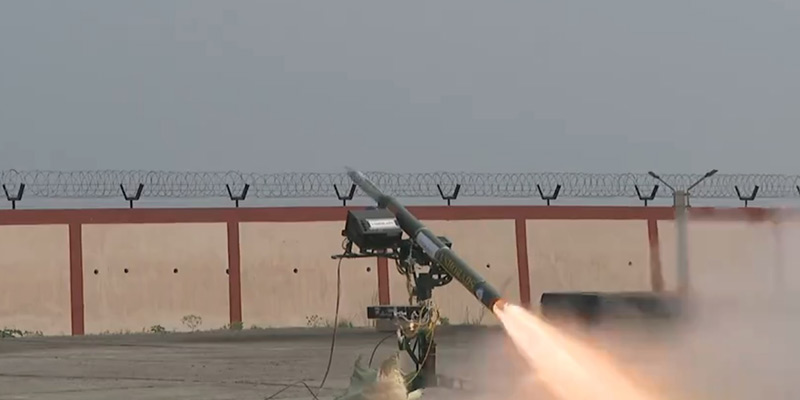

In a significant push toward self-reliance in defense manufacturing, the Ministry of Defence (MoD) has issued a Request for Proposal (RFP) to procure 48 launchers, 48 night vision sights, 85 missiles, and one missile test station for the Very Short Range Air Defence System (New Generation) [VSHORADS-NG] under the “Buy (Indian)” category. This acquisition, aimed at enhancing the Indian Army’s air defense capabilities, underscores India’s commitment to the Atmanirbhar Bharat initiative, prioritizing indigenously designed, developed, and manufactured systems.
The VSHORADS-NG, developed by the Defence Research and Development Organisation (DRDO) in collaboration with Indian industry partners like Adani Defence & Aerospace and ICOMM Tele Limited, is a fourth-generation MANPADS designed to neutralize drones, helicopters, and low-flying aircraft. The system, an evolution of the DRDO’s VSHORADS tested successfully in 2022-2024, features advanced infrared (IR) homing, miniaturized reaction control systems, and integrated avionics, offering a range of 250 meters to 6 kilometers and a speed of Mach 1.5. Its portability—either shoulder-launched or tripod-mounted—ensures flexibility for troops in diverse terrains, from high-altitude borders to coastal regions.
Continue readingSOURCE: IDRW.ORG


In a significant step towards bolstering India’s self-reliance in defense technology, the Defence Research and Development Organisation (DRDO) has handed over Transfer of Technology (ToT) agreements for two advanced communication systems. The L/S Band Digital Troposcatter Communication System technology was transferred to Bharat Electronics Limited (BEL), while the Compact Troposcatter Communication System technology was provided to HFCL Limited (HFCL). This move, announced on April 29, 2025, underscores DRDO’s commitment to fostering indigenous manufacturing capabilities through public-private partnerships.
Troposcatter communication systems are critical for long-range, beyond-line-of-sight communication, often used in military operations where traditional line-of-sight systems like satellite or microwave links are unavailable or impractical. The L/S Band Digital Troposcatter Communication System, now in BEL’s hands, leverages the L and S frequency bands to enable robust, high-capacity data transmission over long distances, even in challenging terrains. BEL, a leading defense electronics company, is well-positioned to integrate this technology into its production lines, enhancing the Indian armed forces’ communication infrastructure.
Continue readingSOURCE: AFI
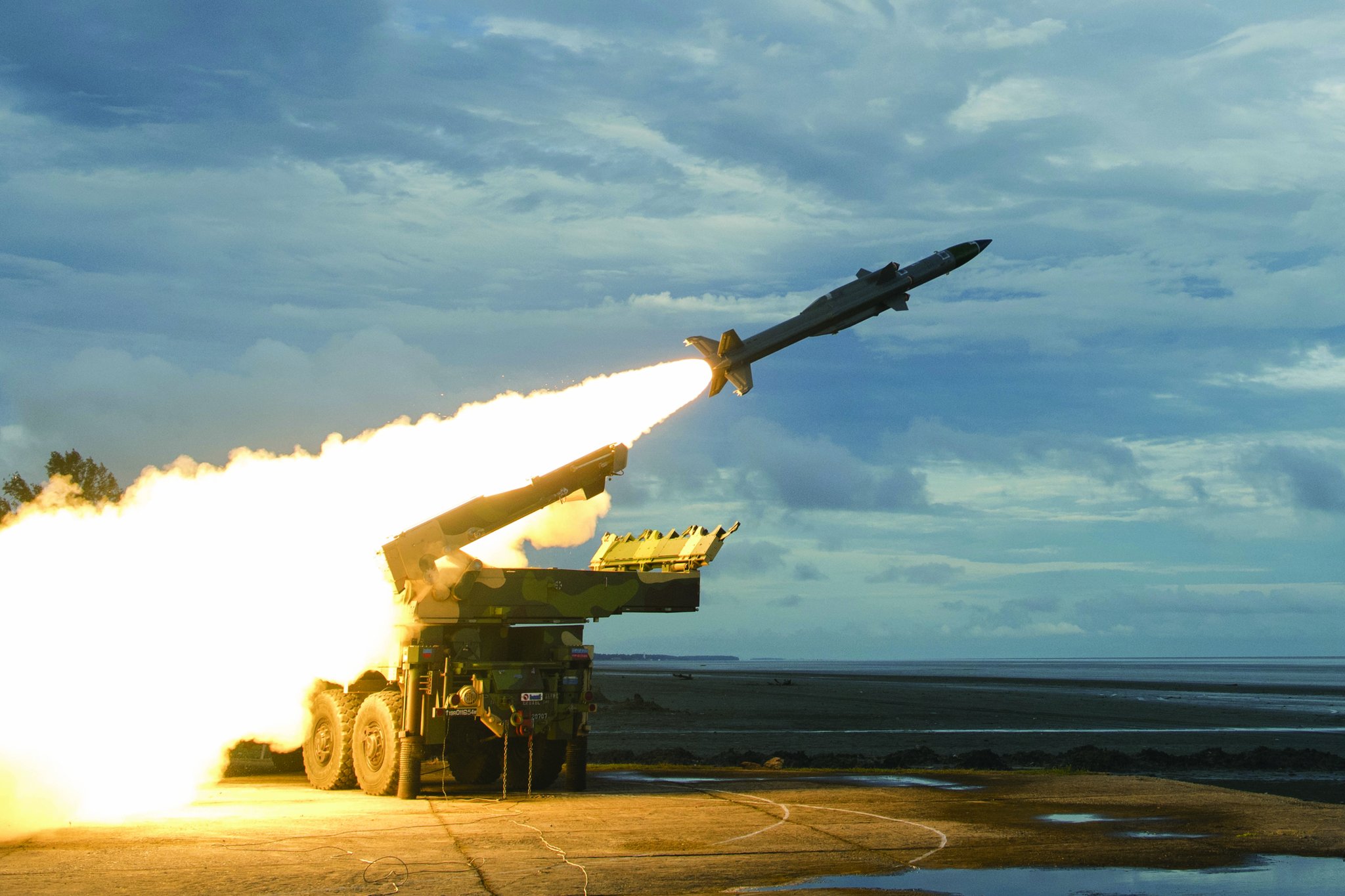

As tensions simmer along the India-Pakistan border, India is placing significant trust in its indigenous Akash Air Defence System to counter a range of aerial threats, including Pakistani military jets, Turkish-made Bayraktar TB2 drones, and Chinese Unmanned Combat Aerial Vehicles (UCAVs) like the CH-4 and Wing Loong II. With Pakistan bolstering its arsenal through acquisitions from Turkey and China, the Akash system’s versatility and proven capabilities make it a cornerstone of India’s air defence strategy.
As of 2016, Bharat Dynamics Limited (BDL) was producing 50–60 Akash missiles per month, a rate that has likely scaled up to meet growing domestic and export demands. Here’s a deep dive into how the Akash system is poised to neutralize Pakistan’s aerial threats and why it remains a game-changer in the region.
Continue readingSOURCE: AFI
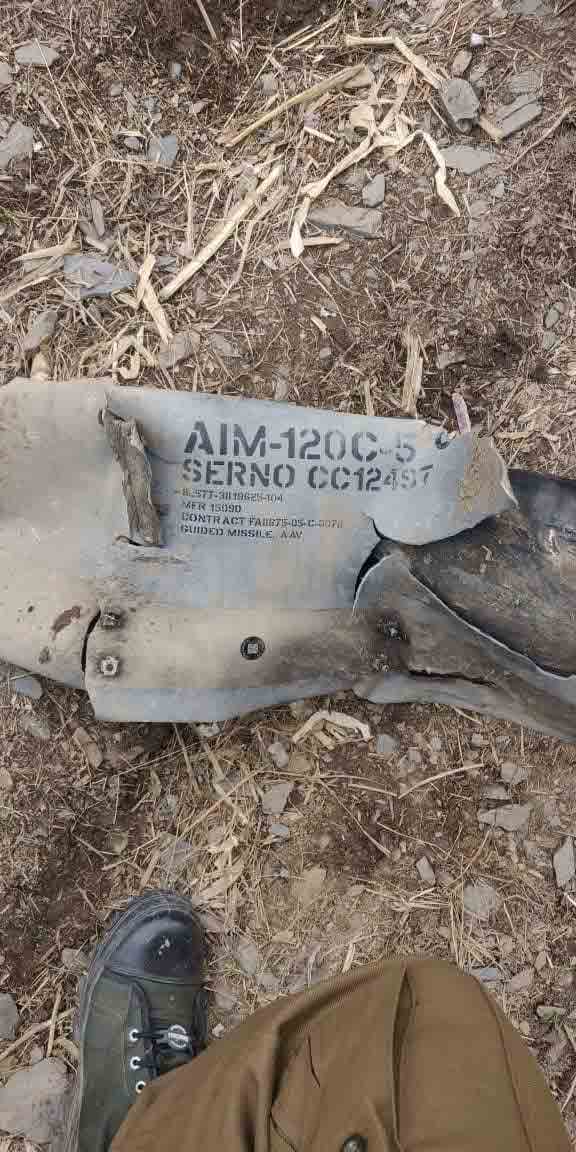

The Pakistan Air Force (PAF) may be compelled to phase out its stockpile of 500 AIM-120C-5 Advanced Medium-Range Air-to-Air Missiles (AMRAAMs) by the end of 2028, as the missiles approach the end of their operational service life. Acquired in 2010 under a $650 million F-16 ammunition contract signed in early 2006, these missiles, with an estimated unit cost of $1.3 million, have been a cornerstone of the PAF’s air-to-air combat capabilities. However, the aging propulsion systems and stringent maintenance requirements may force their retirement unless extended through costly service life extension programs (SLEPs).
The AIM-120C-5, manufactured by Raytheon (now RTX), is an all-weather, beyond-visual-range missile powered by a solid-fuel rocket motor enhanced under the AMRAAM Propulsion Enhancement Program (PEP). This upgraded motor, housed in the WPU-16/B propulsion unit, offers improved range and performance over earlier variants, with an operational range of approximately 105-120 kilometers. The PEP motor is designed to withstand operating and storage temperatures ranging from -65°F to +145°F, but its baseline service life is rated at 10 years from manufacture, which for the PAF’s missiles would have expired around 2020, given their production in the late 2000s.
Continue readingSOURCE: AFI

Several major European airlines, including Lufthansa, Air France, British Airways, and SWISS, have begun voluntarily avoiding Pakistani airspace due to escalating tensions between India and Pakistan, following Pakistan’s closure of its airspace to Indian carriers. This development, reported by The Times of India, is causing significant disruptions to international flight routes, increasing operational costs, and extending travel times for passengers.
The decision by European carriers comes in the wake of Pakistan’s airspace restrictions, effective from April 24, 2025, which barred Indian-registered aircraft, charter operators, and private jets from overflying its territory. The move was part of Pakistan’s retaliatory measures after India accused Pakistani nationals of involvement in the April 22 Pahalgam terror attack, which killed 26 Hindu tourists in Jammu and Kashmir. India responded by closing its airspace to all Pakistani-registered aircraft, including military planes, from April 30 to May 23, 2025, further intensifying the aviation standoff.
Continue readingSOURCE: AFI
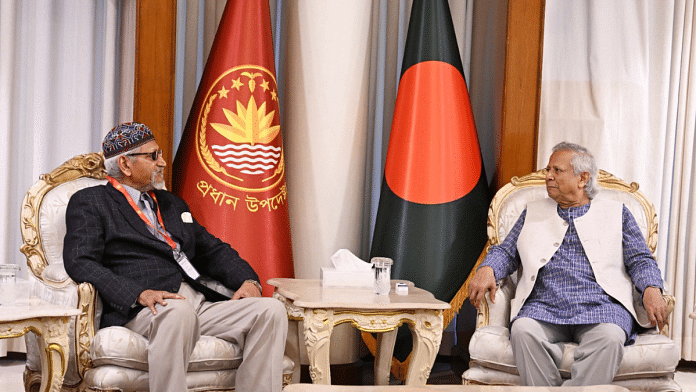

The Bangladesh government has swiftly distanced itself from inflammatory remarks by Major General (Retd) ALM Fazlur Rahman, a former head of the Bangladesh Rifles (now Border Guard Bangladesh), who suggested that Bangladesh should occupy India’s seven northeastern states in the event of an Indian military retaliation against Pakistan following the April 22, 2025, Pahalgam terror attack that killed 26 people. The statement, posted on Rahman’s personal Facebook account on April 30, 2025, also proposed discussions with China for a joint military arrangement, escalating regional tensions already strained by the India-Pakistan standoff.
Rahman, currently the chairperson of the National Independent Commission investigating the 2009 Bangladesh Rifles mutiny, wrote in Bengali, “If India attacks Pakistan, Bangladesh should occupy the seven states of Northeastern India. In this regard, I think it is necessary to start a discussion on a joint military system with China.” The remarks, reported by The Tribune India, sparked immediate backlash in India, prompting Bangladesh’s Ministry of Foreign Affairs to issue a clarification on May 2, 2025, stating that Rahman’s views “do not reflect the position or policies of the government of Bangladesh” and that the government “neither endorses nor supports such rhetoric in any form or manner.”
Continue readingSOURCE: AFI
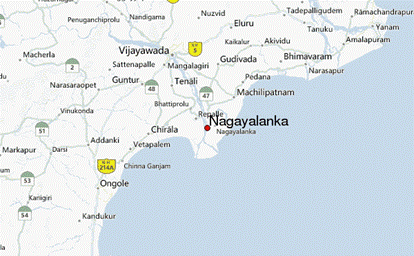

Prime Minister Narendra Modi laid the foundation stone for the Navdurga Missile Test Range in Nagayalanka, Andhra Pradesh, on May 2, 2025, marking a significant step in strengthening India’s defense infrastructure. Valued at ?1,460 crore (approximately $170 million), this state-of-the-art facility, developed by the Defence Research and Development Organisation (DRDO), is poised to enhance India’s capabilities in testing advanced tactical missile systems, including surface-to-air and anti-tank missiles. The project, part of a broader ?58,000 crore development initiative unveiled during the Prime Minister’s visit to Amaravati, underscores India’s commitment to self-reliance in defense technology under the “Make in India” initiative.
Located in Gullalamoda village, Nagayalanka mandal, Krishna district, the missile test range will span over 300 acres near the coastal town of Machilipatnam, leveraging the region’s strategic geography at the confluence of the Krishna River and the Bay of Bengal. The facility will feature a launch control center, multiple launch pads, indigenous radars, telemetry, and electro-optical tracking systems, enabling comprehensive testing of both short- and long-range missile missions. Its coastal location offers a vast, unobstructed range for live-fire trials, with minimal risk to populated areas, making it ideal for simulating real-world combat scenarios.
Continue readingSOURCE: UNI

The Ministry of Defence (MoD) has issued a Request for Information (RFI) to acquire three High-Altitude Platform Systems (HAPS), also known as pseudo-satellites, for the Indian Air Force (IAF), as reported by The Tribune India. These solar-powered unmanned aerial vehicles (UAVs) are designed to operate in the stratosphere at altitudes of approximately 20 kilometers, providing long-endurance intelligence, surveillance, and reconnaissance (ISR) capabilities, as well as data relay functions. This move, announced amidst heightened regional tensions following the April 22, 2025, Pahalgam terror attack, underscores India’s strategic push to enhance its aerial surveillance and bolster indigenous defense technologies under the Atmanirbhar Bharat initiative.
HAPS, often referred to as pseudo-satellites due to their ability to perform satellite-like functions at a fraction of the cost, are lightweight UAVs capable of loitering for extended periods—up to 48 hours or more—using solar panels and battery systems. Operating above commercial air traffic and adverse weather, these platforms offer persistent surveillance over vast areas, making them ideal for monitoring sensitive borders, such as those with Pakistan and China, and supporting disaster management or communication relays in remote regions. The IAF’s interest in HAPS aligns with Chief of Defence Staff General Anil Chauhan’s recent call at the Indian DefSpace Symposium for developing a “space culture” to prepare for space as a new warfare domain.
Continue readingSOURCE: IANS


India’s decision to put the 1960 Indus Waters Treaty (IWT) in abeyance after the April 22 Pahalgam terror attack should send a strong message to Pakistan that engaging in activities that threaten their neighbours does lead to consequences, a key aide of US President Donald Trump during his first term told IANS in an exclusive interview on Saturday.
“It is something that I hope can be resolved between India and Pakistan. This question of riparian rights in countries that are obviously critically dependent for irrigation and other uses on this water supply. If arrangements that have been worked out in the past are no longer workable, I think everybody is going to suffer, particularly in the downstream areas. So, it should be a message to Pakistan that engaging in activities that threaten their neighbours do lead to consequences,” John Bolton, the US National Security Advisor (NSA) to the US President Donald Trump from 2018-2019, told IANS in an exclusive interview.
Continue readingSOURCE: IANS


After banning all imports from Pakistan, India on Saturday barred Pakistan-flagged ships from entering any of its ports, following the barbaric attack in Jammu and Kashmir’s Pahalgam, which took 26 lives. According to a directive from the Ministry of Ports, Shipping and Waterways, Pakistan-flagged ships have been banned from entering Indian ports.
The directive also prohibited India-flagged vessels from docking at ports in Pakistan. Citing national security concerns, the directive was implemented to “ensure the safety of Indian assets, cargo, and related infrastructure, in public interest and for the interest of Indian shipping”.
Continue readingSOURCE: PTI


Pakistan on Saturday announced that it has conducted a successful training launch of the Abdali Weapon System — a surface-to-surface missile with a range of 450 km, amid heightened tensions with India following the Pahalgam terror attack.
“The launch was aimed at ensuring the operational readiness of troops and validating key technical parameters, including the missile’s advanced navigation system and enhanced manoeuvrability features,” the army said in a statement.
Continue readingSOURCE: PTI
)

Defence Minister Rajnath Singh is set to skip Russia’s Victory Day parade and his deputy Sanjay Seth is likely to represent India at the event in Moscow this week, official sources said on Saturday.
The move to send the Minister of State for Defence to the May 9 ceremony comes amid increasing tensions between India and Pakistan over the Pahalgam terror attack. Russia had invited Prime Minister Narendra Modi for the Victory Day parade to mark the 80th anniversary of the Soviet victory over Germany in the Second World War, but it was decided that Singh would attend the event.
Continue readingSOURCE: PTI
)

Prime Minister Narendra Modi on Saturday announced a $200 million defence credit line for Angola and expressed commitment to act firmly and decisively against terrorists and their backers, an assertion that came days after the Pahalgam terror strike.
Modi made the remarks after holding wide-ranging talks with Angolan President Joao Manuel Goncalves Laurenco that focused on ramping up overall bilateral ties, including in areas of digital public infrastructure.
Continue readingSOURCE: PTI


“I am born to serve the Jammu and Kashmir Police and my country, India,” 45-year-old policeman Iftkhar Ali said on Saturday, just days after he and his eight siblings narrowly escaped deportation to Pakistan – a fate averted only through the timely intervention of the high court.
For Ali, who hails from Mendhar sub-division near the Line of Control (LoC) in Poonch district, the uniform is more than a job – it’s a calling. He has dedicated nearly half his life in the police force, serving its various wings with distinction and earning multiple commendations for his courage and unwavering commitment to duty.
Continue readingSOURCE: PTI
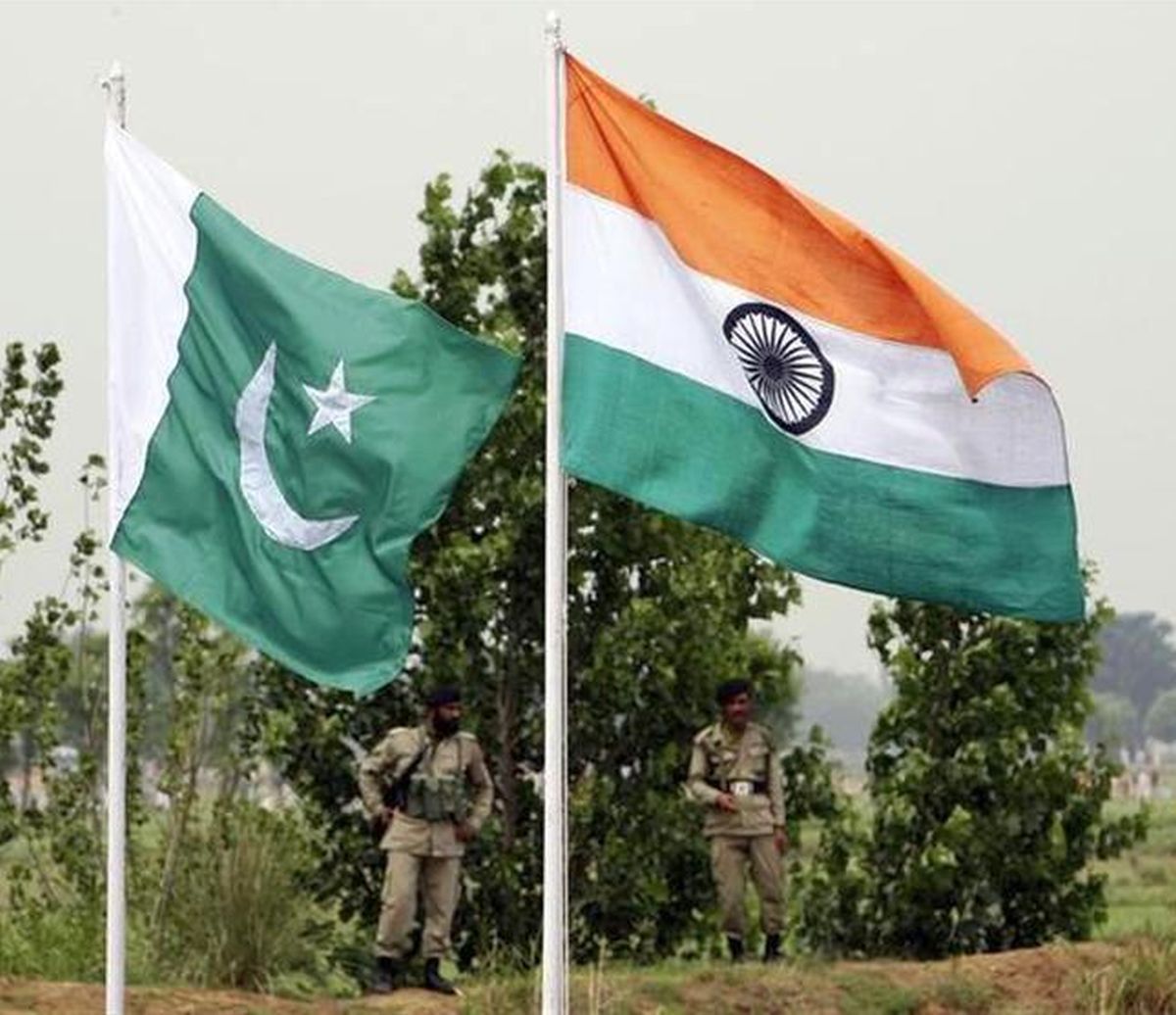

India on Saturday suspended exchange of all categories of mail and parcels from Pakistan through air and surface routes amid escalating tensions between the two nations over the Pahalgam terror attack that killed 26 people.
The order suspending the services was issued by the Department of Posts that operates under the Ministry of Communication.
Continue reading